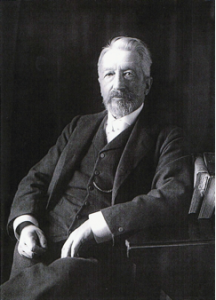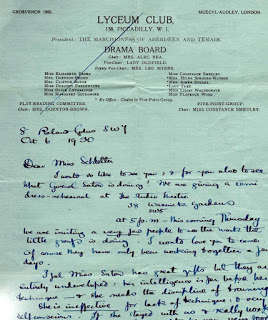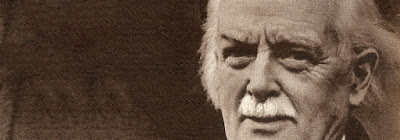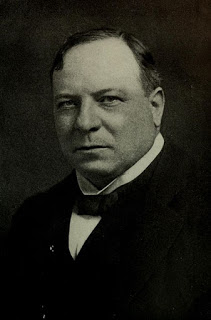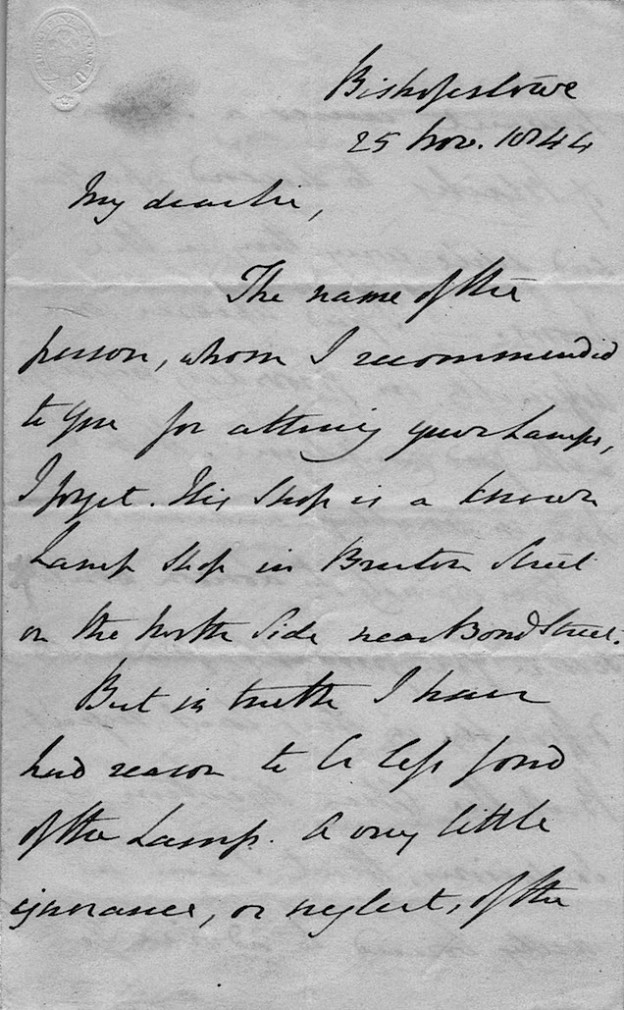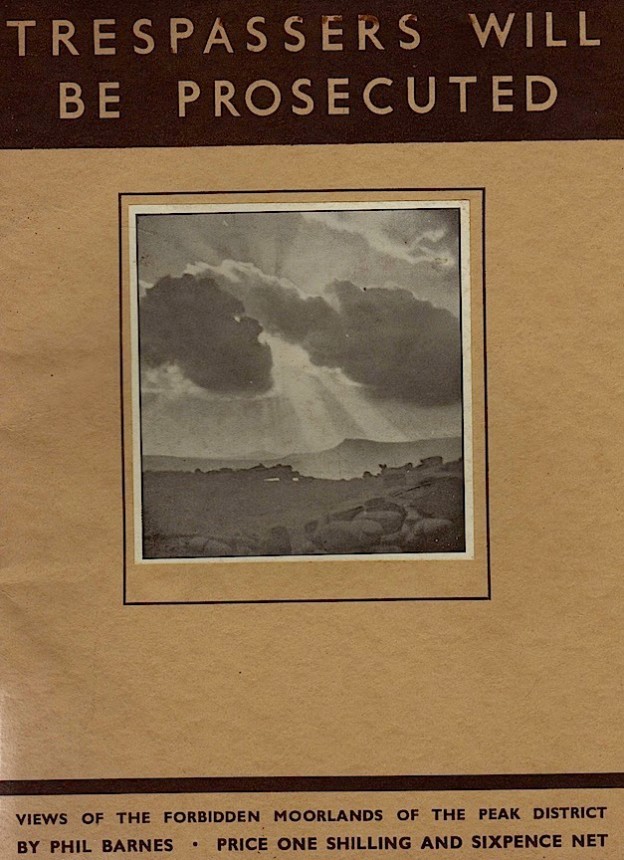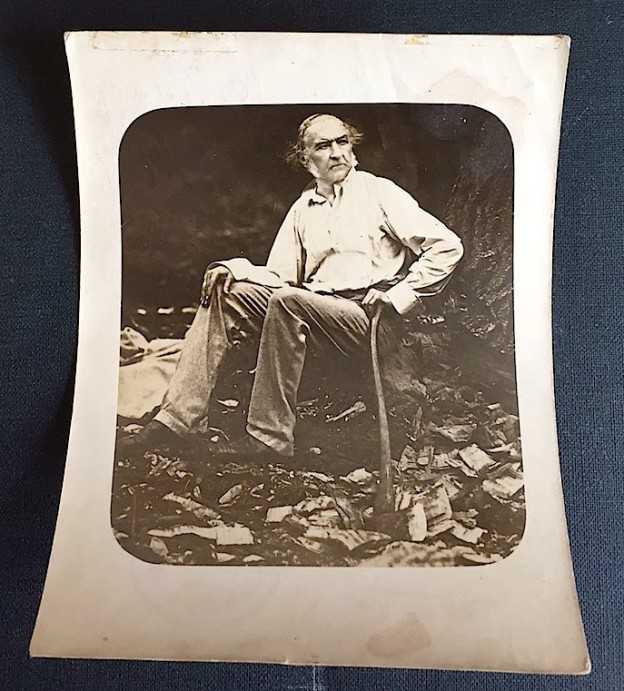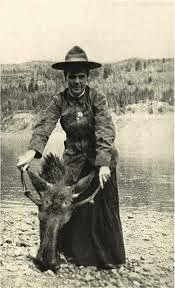
Mina Hubbard (1870 – 1956) is not a name that means much in the UK, although this intrepid explorer of Labrador ( the first woman to do so) retired to Britain and ended up in suburban Coulsdon, of all places, where she died rather tragically at the age of 86.
Born in Bewdley, Ontario, in 1870, to a Canadian father and an English mother, there was little in her early years that would suggest that worldwide fame as an explorer would attend her by the time she was 35. After leaving school she spent two years teaching, then trained as a nurse. It was while nursing that she met the journalist Leonidas Hubbard, then ill with typhus (or typhoid). The couple married in 1901 and within 2 years he had embarked on an unsuccessful expedition to map northern Labrador that ultimately cost him his life. Such a tragedy would have destroyed some women, but Mina was made of sterner stuff. When Dillon Wallace, a survivor of the expedition, published his account Mina suspected that he had been responsible for her husband’s death through starvation and vowed to revenge herself on him by embarking on her own expedition to achieve what he and her husband had failed to do. Recruiting three guides, two of them Cree Indians, she left for Labrador on June 27th 1905 and by 29th August had completed a trek of 576 miles, beating Wallace, who had embarked on the same day, by seven weeks. Not only did she bring home an accurate map of northern Labrador, but she also made an important photographic record of the native Labradorians she had met.
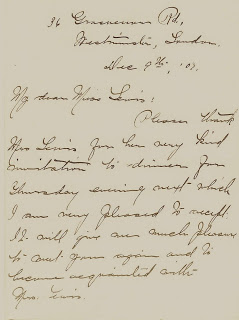 On her return home Hubbard became an overnight celebrity. Before long she had been sponsored by the Royal Geographical Society to undertake a lecture tour in England. It was while on that tour that she wrote this letter to a Miss Lewis (possibly an admirer) gratefully accepting an invitation to dinner. She also met her second husband, the MP Harold Ellis. In 1908 appeared A Woman’s Way through Unknown Labrador , which became a best-seller. Today this account of her expedition, and in particular the photographs she took of the native tribes, is generally recognised as one of the most valuable anthropological records of the period. More recently, however, it has sparked controversy. In particular, feminist commentators have interpreted the text as a seminal document in women’s studies. Hubbard’s projected persona in the book is seen as that of a woman performing a male role as a conqueror of a hostile environment.
On her return home Hubbard became an overnight celebrity. Before long she had been sponsored by the Royal Geographical Society to undertake a lecture tour in England. It was while on that tour that she wrote this letter to a Miss Lewis (possibly an admirer) gratefully accepting an invitation to dinner. She also met her second husband, the MP Harold Ellis. In 1908 appeared A Woman’s Way through Unknown Labrador , which became a best-seller. Today this account of her expedition, and in particular the photographs she took of the native tribes, is generally recognised as one of the most valuable anthropological records of the period. More recently, however, it has sparked controversy. In particular, feminist commentators have interpreted the text as a seminal document in women’s studies. Hubbard’s projected persona in the book is seen as that of a woman performing a male role as a conqueror of a hostile environment.
The Ellises produced three children, but the couple parted in the twenties and Mina returned to Canada in 1936. After this she seems to have led a rather conventional life, latterly in poverty. In 1956, while staying with a friend in Coulsdon, near Croydon, she left the house to ‘ explore’ and on her way to the nearby Coulsdon South station she wandered aimlessly over the tracks, was hit by a speeding train and killed instantly. She was 86. What the grizzly bears and below zero temperatures of Labrador had failed to do, a British Railways commuter train had completed. [RMH]


